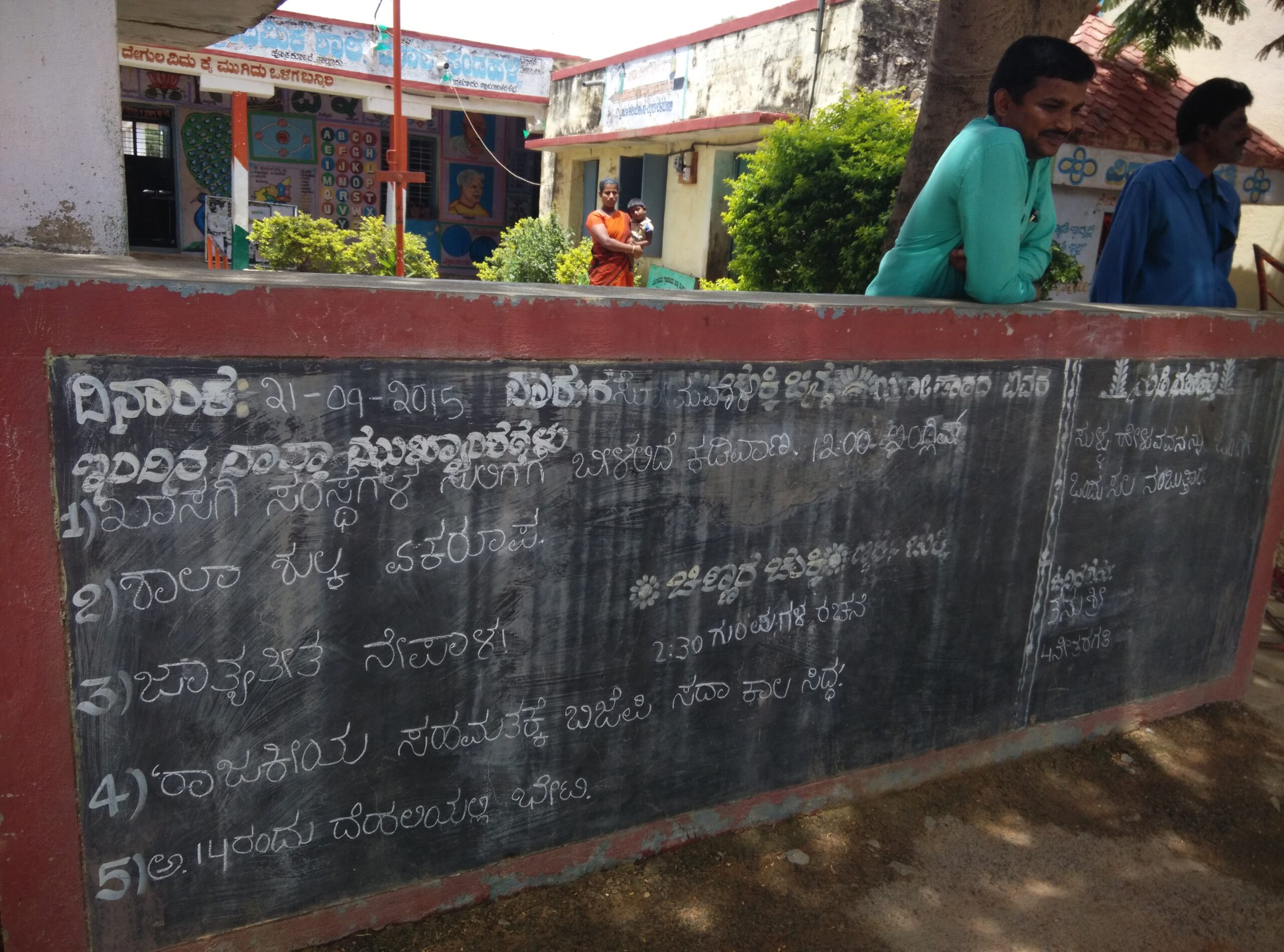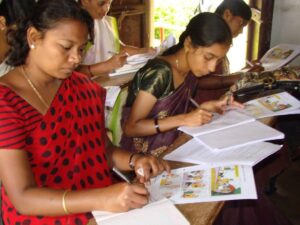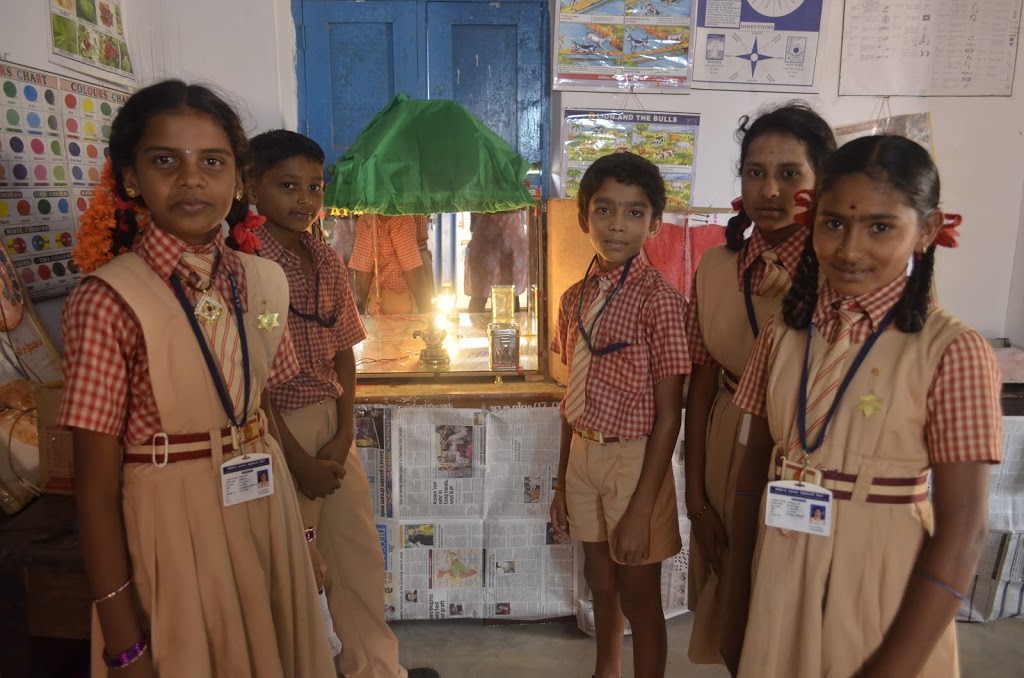The Government Kannada Lower Primary School in Marasandahalli, Hosakote block, Bangalore Rural District, has not changed in all these years that Akshara has been working here. It looks like a little village abode even now, an overhang of foliage framing the veranda. Around 25-30 children, classes 1-5, poorly equipped as before, two teachers, and under-resourced.

In a small, half-lit classroom, one of only two in the school, teacher Shyam Shankar directs a Mathematics class for grades 4 and 5 with Akshara’s teaching-learning materials (TLMs) – the square counters, base ten blocks, fraction strips, decimal set and much else making for random choreography on the floor. Shyam Shankar would not have it any other way in his Mathematics class.
Akshara’s Mathematics programme, Akshara Ganitha, ended here two years ago. But this dedicated teacher, who took up Mathematics as his discipline midway into his 15-year career only because he was inspired by the programme, preserves its TLM kit with respect.
“I use it every day. Absolutely,” he says.
It shows. Many of his students are achievers. In 2016-17, Chetan gained admission to class 6 in Navodaya and Monisha to Morarji . In 2017-18, Tanushree and Varshini made it to Navodaya. Not many children move meritoriously from government schools to quality-conscious Navodaya and Morarji schools for secondary stage education. The passage is arduous.
“They were able to score well because of the Mathematics coaching with Akshara’s TLMs,” says Shyam Shankar. “Children get a good foundation because of it. Their skills become stronger.”
In September 2016, Tanushree bagged the 1st prize and Varshini the 2nd in the Gram Panchayat Mathematics Contest Akshara Foundation held, in which the Marasandahalli school was one of the 9 participating schools. Close to 100 children from classes 4, 5 and 6 contested. Tanushree and Varshini had already crossed the threshold to bigger things in Navodaya, but represented their old school, holding aloft its flag of merit.
This is not the only banner flying high. As enlightened teachers, Shyam Shankar and his colleague know the value of engaging the community. Akshara’s community engagement team says, “There’s cooperation between the teachers and the people. Parents visit the school regularly to ask about the progress of their children. The teachers have the mobile numbers of all the parents. There’s trust between these two stakeholders.”
The team also acts as a catalyst, bringing together villagers, parents, teachers and students to sustain the momentum for education. In a progressive village like Marasandahalli, it is not hard to do. It has 483 people and a literacy rate of 60.80%, not too high, comparatively. The educational impetus, however, is strong in a village which has hardly any transport connectivity, and where the livelihoods are dairy, silkworm rearing and small-scale trade. “The important thing is the villagers have the enthusiasm to educate their children,” the team says.
Chetan, Monisha, Tanushree and Varshini are the new generation, their aspirational urge nurtured by a good government school, supportive teachers and an education-oriented community.
– Lakshmi Mohan for Akshara Foundation
















